Back to school: Four virus claims that parents should ignore
- Published
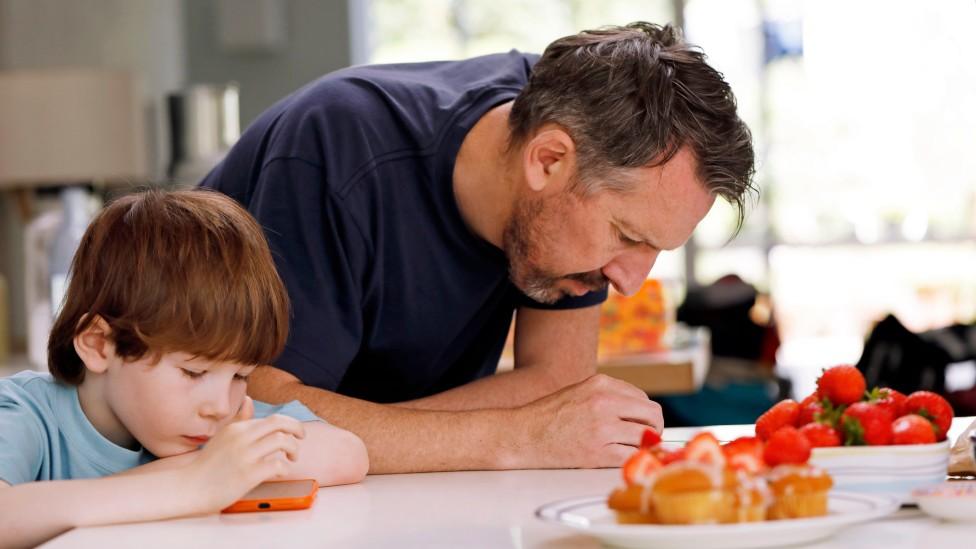
Children are returning to classrooms, many for the first time in six months. As they do so, parents are having to wade through masses of guidance and advice about what to expect in a Covid-safe school. But not everything can be believed.
There has been a range of misleading claims about what could happen to pupils on their return, which have been circulating on social media. We've looked at some of them.
1. Claim: Schoolchildren can be tested and detained - without parents' permission
Teachers cannot take children to a coronavirus testing centre without the permission of a parent. And it is misleading to suggest they could be held without parental access if they tested positive.
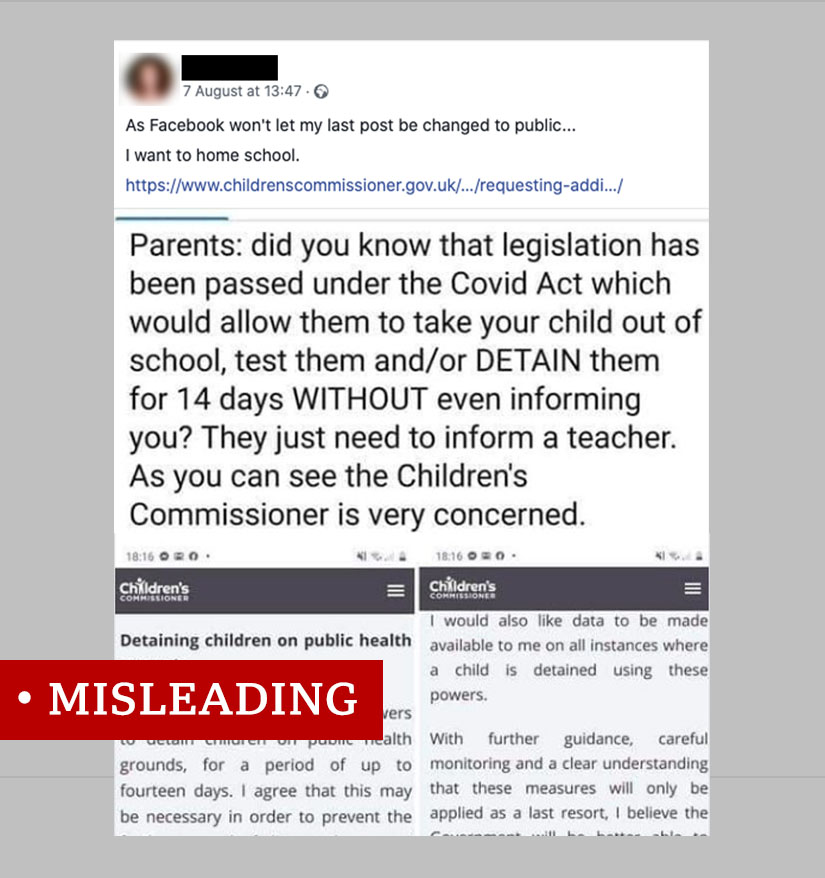

But more than 500 Facebook and WhatsApp posts in the past month - one of which has been shared 10,000 times on Facebook - claim otherwise.
Aimed at "all caring parents out there", many of the posts quote a letter from the children's commissioner , externalto top officials in the departments of health and education. The commissioner asks for assurances about the use of emergency powers under the Coronavirus Act, external to detain or screen children without parental consent.
In August, the commissioner updated her post online, saying: "We have had confirmation from the DfE and DHSC that a parent, carer or legal guardian has to be present for a screening to take place under these powers." In the event of a positive test, the most likely result would be self-isolation at home, the commissioner adds.
While powers of detention do exist, they would be used only in extreme cases, where there is a clear risk to other people, shadow public health minister Alex Norris says. Guidance to public health officials on these powers is available on the UK government website, external.
2. Claim: All schoolchildren will be weighed in September
There are no plans to do this.
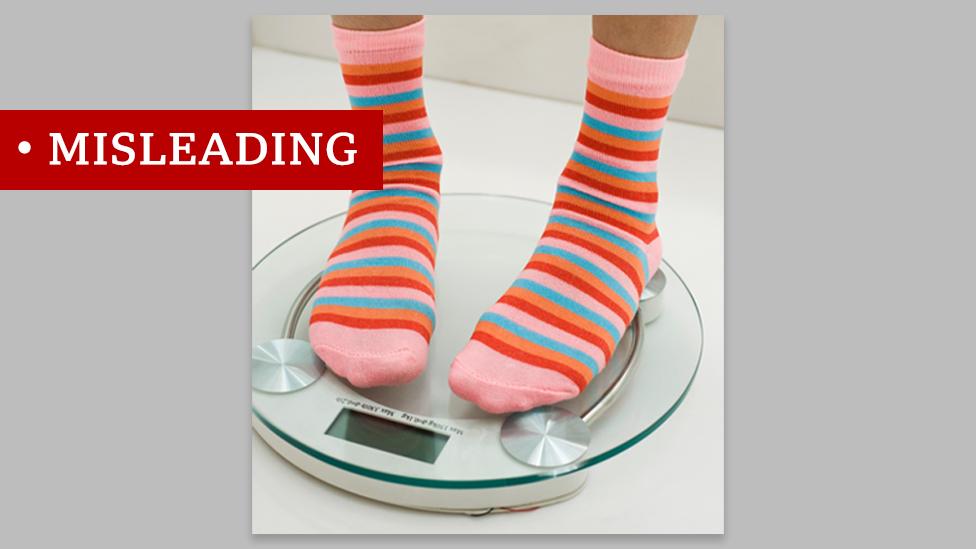
Many followers of the BBC's Instagram pages told us they had seen posts suggesting all schoolchildren would be weighed in September. This appears to have started when Tam Fry, who chairs the National Obesity Forum, suggested pupils' weight should be taken at the start and end of the school year. The idea was to see if they had lost any weight they had put on during lockdown.
The suggestion was discussed on Channel 5's Jeremy Vine programme, on Monday 10 August, and in various newspaper articles, external.
But the only weighing of children will be due to the planned resumption of the National Childhood Measurement Programme, overseen by Public Health England. It weighs children in Reception and Year 6 as part of the government's childhood obesity strategy.

How can you spot misleading claims in your parents' group chat?

How can you spot misleading claims or conspiracy theories being shared in your parents' WhatsApp or local Facebook group - and stop them spreading?
Ask yourself where the information being shared has come from - interrogate the source - is it reliable and do you know the origin of the claim? Rumours on group chats or local Facebook groups attributed to an unnamed source are probably not. Go to reliable places for the latest updates: your child's school, the NHS website or the BBC News app.
Think about how the information makes you feel. Since these posts are often about keeping children safe, they're likely to be very emotive. It's the stuff that makes us fearful, angry, anxious, or joyful that tends to really go viral. And urgent calls for action are often designed to ramp up anxiety - so be careful.
Stop and think before you share. Unless you're certain information is correct, it's better not to spread claims in group chats and with other parents. It gets everyone in a panic.

3. Claim: There are no cases of teachers infected by children
It isn't true to say no teacher has been recorded as catching Covid from children.
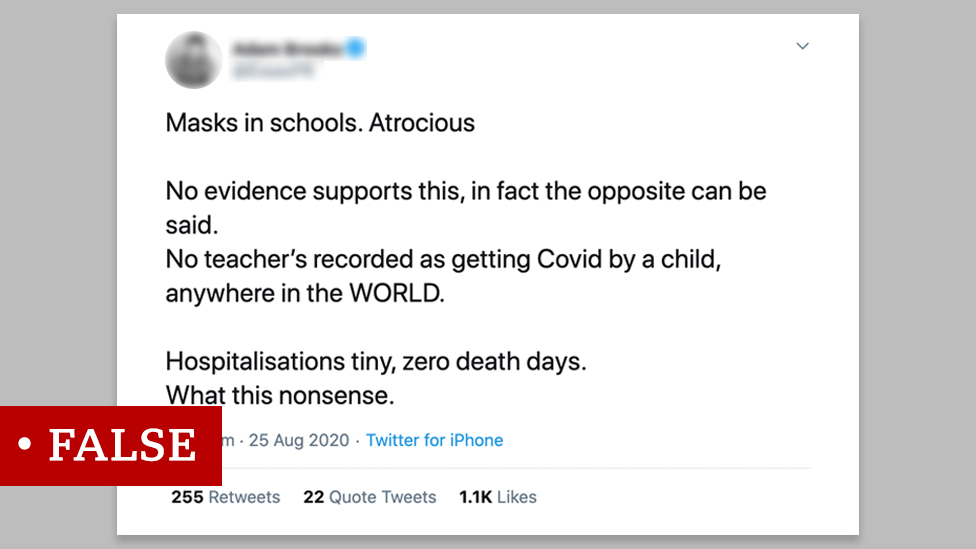
Public Health England investigated all the outbreaks in schools in June, external, when schools were below 5% capacity. Most were due to staff passing on the virus to each other or pupils. But in six of the 30 outbreaks, pupil-to-staff transmission was found to be the likely source. Experts say such incidents have been rare.
It is correct to say children's risk of being admitted to hospital with coronavirus or dying from it is low.
The rules around face coverings for pupils differ around the UK - in Scotland and Northern Ireland, older school pupils will have to wear them between lessons. In England, they are compulsory in areas under lockdown. But the issue has led to a range of claims about masks recirculating - we've looked into them in recent months.
There is no evidence, for example, properly worn masks cause hypoxia (oxygen deprivation), carbon dioxide poisoning or damage to the immune system.
4. Claim: Masks could end up helping child abductors
We can't find any evidence of people trying to use the tactics in the post below to abduct children. Likewise, there's no evidence that wearing masks somehow increases the risks.
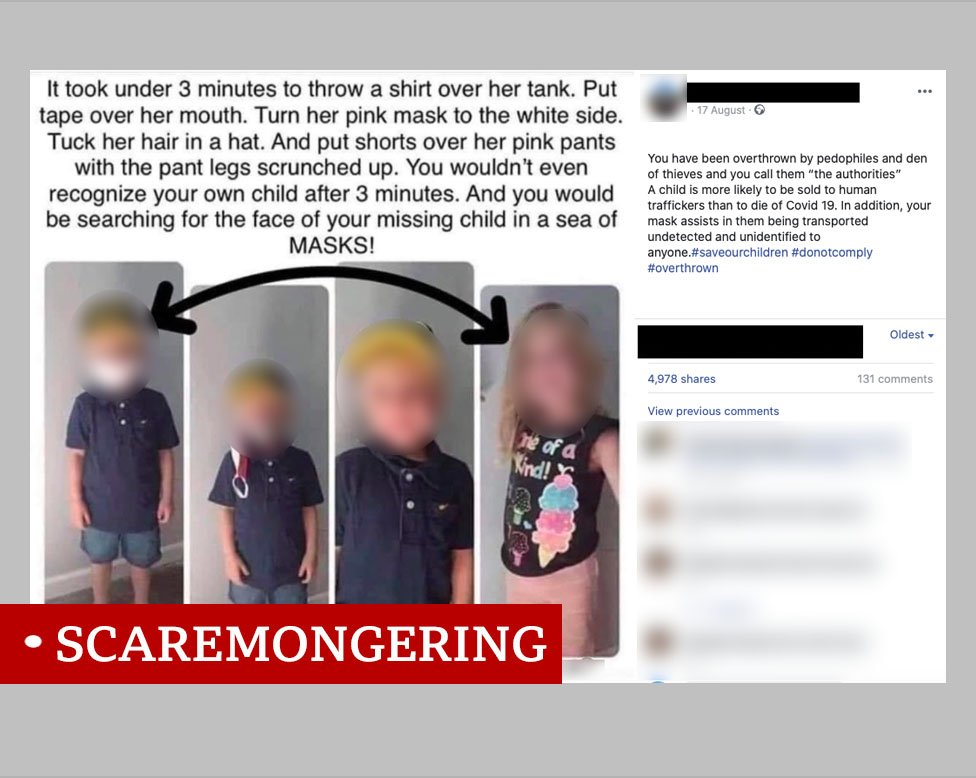
This image has appeared in more than 150 posts on Facebook in the past month, mainly in the US but also Canada, the Netherlands and the UK. And it has been shared more than 26,000 times.
What should be setting off alarm bells about this post is the use of the hashtag #saveourchildren, which is used by the QAnon conspiracy-theory group. Its followers believe US President Donald Trump is waging a secret war against elite Satan-worshipping paedophiles in government, business and the media.
Some child-protection charities, such as the KidSafe foundation in Florida, have warned, external QAnon's social-media activity "threatens to diminish our identities, tarnish our reputations and harm our good works".
Other charities have said the posts have led to their helplines being overrun, preventing them doing their work.
And Save the Children in the US tweeted, external objecting to the group's use of #SavetheChildren.
Additional reporting by Olga Robinson and Alistair Coleman


